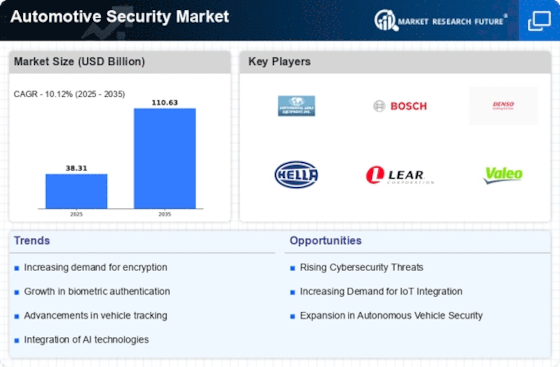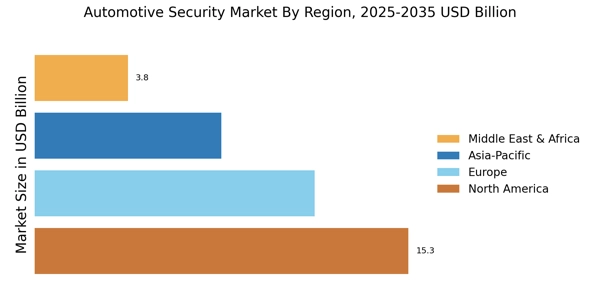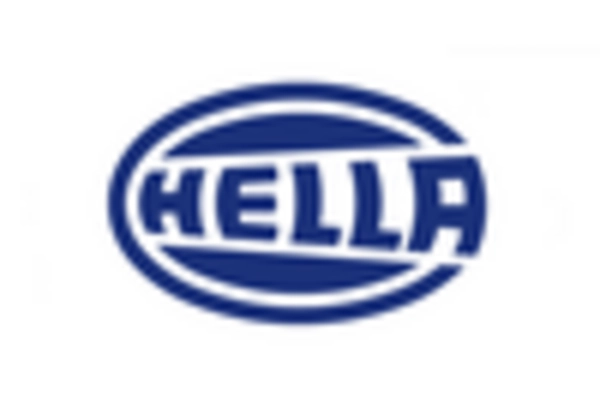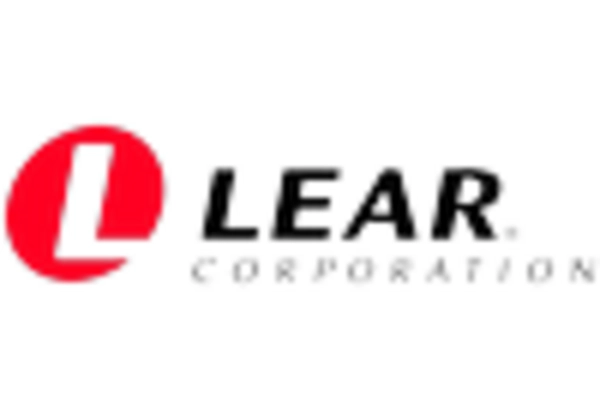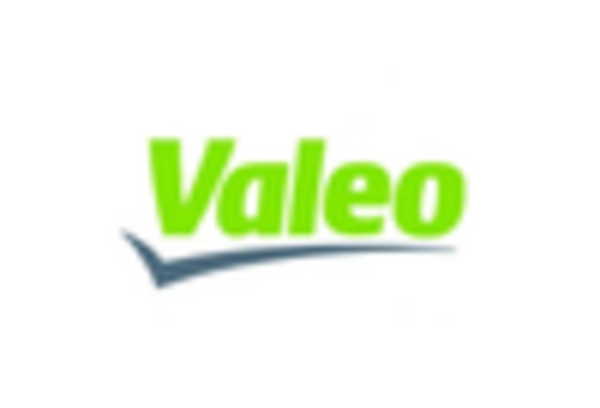Increasing Vehicle Theft Rates
The Automotive Security Market is experiencing a surge in demand due to rising vehicle theft rates. Statistics indicate that vehicle theft has escalated in various regions, prompting consumers and manufacturers to seek enhanced security solutions. In 2025, it is estimated that vehicle thefts could reach unprecedented levels, leading to a projected increase in the adoption of advanced security systems. This trend underscores the necessity for robust anti-theft technologies, such as GPS tracking and immobilizers, which are becoming standard features in new vehicles. Consequently, the Automotive Security Market is likely to witness significant growth as stakeholders prioritize the protection of their assets against theft.
Regulatory Compliance and Standards
The Automotive Security Market is significantly influenced by stringent regulatory compliance and standards aimed at enhancing vehicle security. Governments are increasingly mandating the implementation of advanced security features in vehicles to protect against cyber threats and unauthorized access. For instance, regulations may require manufacturers to integrate encryption technologies and secure communication protocols in their vehicles. As a result, the Automotive Security Market is expected to expand as manufacturers invest in compliance measures to meet these evolving standards. This regulatory landscape not only drives innovation but also fosters a competitive environment among security solution providers.
Growth of Connected and Autonomous Vehicles
The Automotive Security Market is significantly impacted by the growth of connected and autonomous vehicles. As vehicles become increasingly integrated with internet connectivity and advanced technologies, the potential for cyber threats escalates. This trend necessitates the development of robust security measures to protect against hacking and unauthorized access. In 2025, the market for automotive cybersecurity solutions is projected to expand as manufacturers and technology providers collaborate to create secure environments for connected vehicles. The Automotive Security Market is thus poised for growth, driven by the need for comprehensive security strategies that address the unique challenges posed by these advanced vehicle technologies.
Technological Advancements in Security Solutions
The Automotive Security Market is propelled by rapid technological advancements that enhance vehicle security. Innovations such as biometric authentication, advanced encryption, and machine learning algorithms are being integrated into security systems, making them more effective against potential threats. In 2025, the market for smart security solutions is projected to grow significantly, driven by consumer demand for sophisticated protection mechanisms. These advancements not only improve the overall security of vehicles but also contribute to the development of connected car technologies, which are becoming increasingly prevalent. Thus, the Automotive Security Market is likely to benefit from these technological trends.
Consumer Awareness and Demand for Safety Features
The Automotive Security Market is witnessing a shift in consumer behavior, with an increasing emphasis on safety features. As consumers become more aware of the risks associated with vehicle theft and cyber threats, there is a growing demand for advanced security solutions. Surveys indicate that a significant percentage of consumers prioritize security features when purchasing vehicles, influencing manufacturers to enhance their offerings. This heightened awareness is expected to drive the Automotive Security Market as companies strive to meet consumer expectations for safety and security. Consequently, the market is likely to see a rise in innovative security products tailored to consumer needs.


